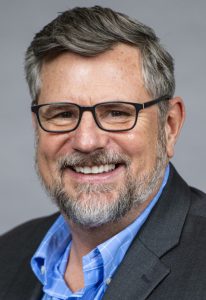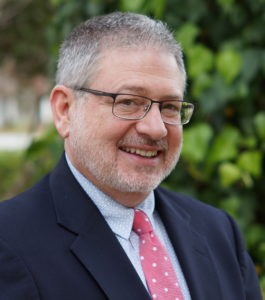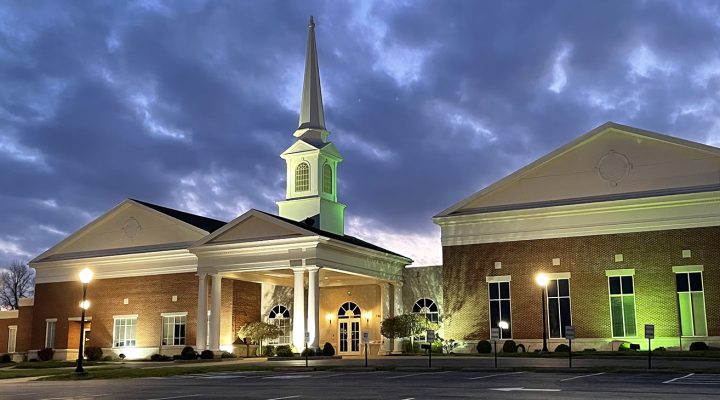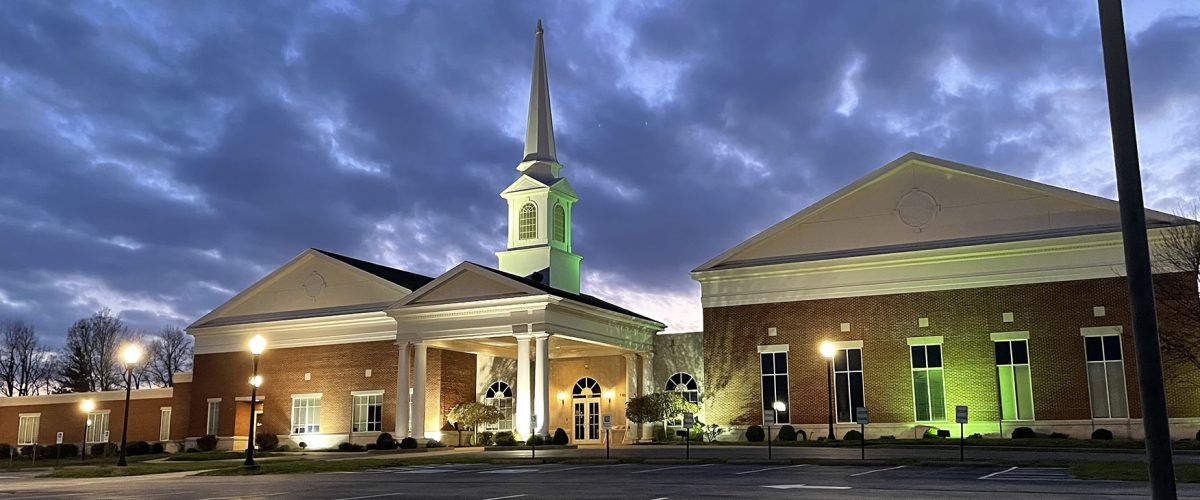After 12 years on the campus of Georgetown College, Baptist Seminary of Kentucky has moved to larger quarters in Lexington, Ky., the city where it was founded 20 years ago.
The seminary has more than doubled its space by making the 20-mile move to Central Baptist Church, said David Cassady, president of BSK. The seminary plans to develop an audio/video studio at its new location, which Cassady said will enable it to employ cutting-edge instructional technologies to serve its growing online enrollment.
The studio also will allow BSK’s students and faculty to create content and resources for congregations, including podcasts, video training, interviews and panel discussions.
Central had excess space and was looking for a use that would support ministry, said Mark Johnson, pastor of the 70-year-old congregation which built a new facility in 2005.

Mark Johnson
“Today’s challenges of ministry, amplified by the pandemic, demand that churches find novel and creative ways to use their facilities for God’s redemptive mission to the world,” Johnson noted. He sees the seminary and congregation “finding bridges of connection as we learn together how to do ministry in virtual and in-person settings.”
Johnson said Central Baptist has been a staunch supporter of BSK since the seminary’s beginning.
“Over the years, our members have been faculty members, administrators, students, trustees and volunteers, serving the seminary’s mission to educate and equip all who feel called by God to ministry,” he said. “The hand of providence now leads us into this shared space as we explore new ways God might be calling us to explore and create together.”
The transition to Central underscores BSK’s dedication to local church ministry, Cassady explained. “Our new campus presents a brick-and-mortar reminder of our mission to prepare individuals for congregational service. While we celebrate the various ministerial capacities in which our graduates serve, preparing ministers for service in congregations is central to our mission.”
Recently, BSK received a nearly $1 million grant from the Lilly Endowment to fund the Siloam Project, which will accelerate BSK’s congregation-centered approach to theological education.

David Cassady
“The Siloam Project recognizes a person’s ministry context is an ideal setting for theological education,” Cassady said. “Part of the project involves collaboration with ‘Learning Churches’ to enhance BSK’s approach to contextual theological education. Thanks to BSK’s virtual classrooms, students can serve in congregations across the United States, take classes at BSK, and put their learning into action while still students.”
While looking forward to the possibilities presented by the new facilities, Cassady said he is appreciative of BSK’s long relationship with Georgetown College.
“We envision an ongoing partnership with Georgetown College, which may include dual-credit opportunities for Georgetown students and other joint academic endeavors,” he said. “However, BSK needed more room to pursue our mission and accommodate our growth and there was no additional space for us at Georgetown.”
Much of that growth has been beyond the bounds of Kentucky. Kentucky students once comprised nearly all students enrolled at BSK, but during the last academic year 55 students from 11 states studied at BSK. It was the school’s largest enrollment in 15 years.
Cassady expects the seminary will continue to grow its enrollment and expand its geographic reach thanks to its virtual classrooms and its partnerships with Baptist bodies. The seminary anticipates it will enroll about 20 new students in the upcoming semester, which Cassady said is an indication of the seminary’s rapid growth.
In 2020, BSK became the official seminary of the National Baptist Convention of America, Inc., one of the largest predominantly Black denominations in the United States. The seminary in the past 21 months has entered into partnership agreements with the Cooperative Baptist Fellowship of Virginia and the Cooperative Baptist Fellowship of Florida and the Caribbean Islands.
When the seminary began in 2002, it held classes at Calvary Baptist Church in Lexington. It moved to Lexington Theological Seminary, a Disciples of Christ school, in 2005 and to Georgetown, a Baptist-related liberal arts college, in 2010.
In 2018, the seminary opened a second site in Louisville at Simmons College of Kentucky, a historically Black institution, that includes classroom space and the offices of BSK’s Institute for Black Church Studies.
“There are signs that BSK’s tradition of providing theological education without owning buildings is becoming a trend among seminaries.”
“There are signs that BSK’s tradition of providing theological education without owning buildings is becoming a trend among seminaries,” Cassady observed.
He pointed to recent news reports of three seminaries that are selling their campuses for the sake of financial efficiency and mission expansion and will begin leasing administrative and instructional space. They are Gordon-Conwell Theological Seminary, an evangelical seminary in South Hamilton, Mass., and two Chicago institutions, McCormick Theological Seminary, a Presbyterian Church (U.S.A.) school, and Lutheran School of Theology, an Evangelical Lutheran Church of America seminary.
Cassady noted all three schools have significant endowments and are well respected by the constituencies they serve. “Theological education is in the midst of a season of significant change as schools innovate and adapt to the evolving needs of churches,” he observed. “Without the financial cost of owning buildings, schools like BSK are able to focus more of our resources on the student experience and our academic programs.”
Despite no longer being on the campus of an institution of higher learning, BSK students will continue to enjoy access to a high-quality library, Cassady emphasized. “We brought a small library to our new location, but in recent years our students and faculty have relied primarily on the superb electronic collection of resources that our membership in the Digital Theological Library provides them.”
The Digital Theological Library serves students in 40 seminaries around the world, and it holds more than 600,000 e-books in a collection that includes both classical and contemporary works.
While BSK’s delivery system for education will be primarily online, the seminary’s core commitments remain unchanged, Cassady vowed. “Our classrooms remain small and seminar-based, encouraging students to develop meaningful relationships with their professors and each other. We are also surrounding students with additional opportunities to be in-person with faculty and one another, recognizing that there are avenues for connection and relationship development that extend beyond the classroom. We are committed to nurturing faith that seeks understanding and equipping students to be effective servant leaders.”
Related articles:
Kentucky seminary receives nearly $1 million grant from Lilly for education innovation
Baptist Seminary of Kentucky joins CBF Florida and the Caribbean Islands in partnership
Kentucky seminary receives Baugh Foundation grant to start Institute for Black Church Studies


